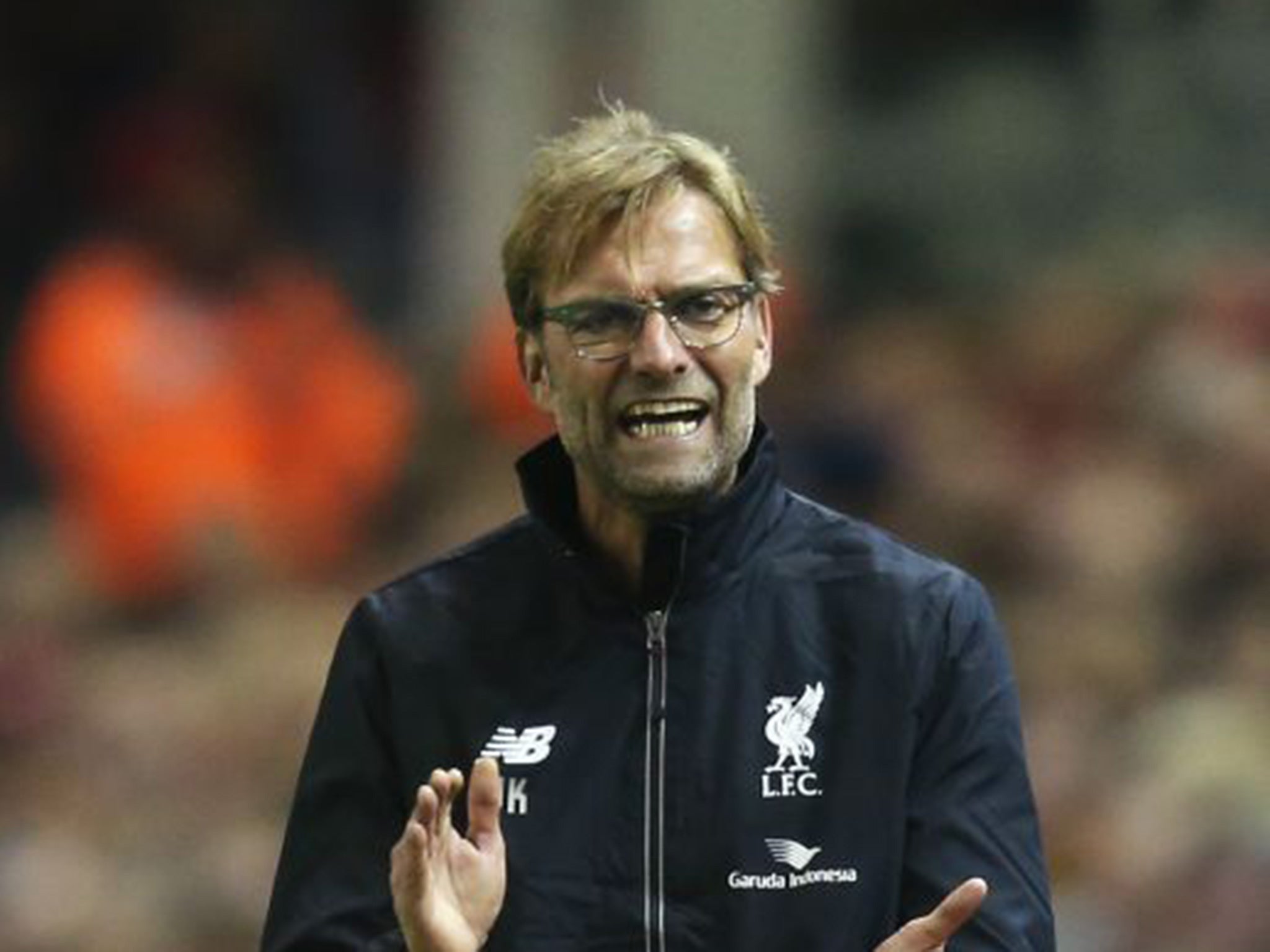Five ways Jurgen Klopp has changed life at Liverpool
The Liverpool manager, Jürgen Klopp, has urged a more positive outlook in players and fans alike

1. Liverpool do not look like conceding from open play
Liverpool’s first-team coach, Pep Lijnders, gave an interview during the week in which he tried to explain how manager Jürgen Klopp’s favoured method of counter-pressing works in this Liverpool team. He reasoned that in each of Klopp’s four games, Liverpool have improved their sense of defensive responsibility when attacking, making the team less vulnerable at the back when breaking forward. Although there needs to be an improved understanding of how they should counter-attack, Klopp is operating without any wingers. The opening of the transfer window in January will surely improve his options.
2. Mamadou Sakho has emerged as a leader
Sakho was never fully trusted by Klopp’s predecessor Brendan Rodgers, who signed Dejan Lovren in the summer of 2014 with the intention of replacing the French centre-back. The player’s lack of confidence was reflected in his performances and it could be argued that his dubious injury record was down to the inconsistent way in which he was selected, preventing his body adjusting fully to the demands of English football. Sakho’s passing statistics have been among the best in the Premier League this season – even under Rodgers – yet the robust and ungainly way in which he moved created nervousness inside Anfield, encouraging the opposition to apply pressure on him when in possession. Suddenly, with Klopp in charge, it is as if Sakho has feasted on iron filings for breakfast. He has become more aggressive, utterly convincing and Liverpool’s best player in each of his three games under the German.
3. Others are playing in their natural positions
Alberto Moreno has appeared more comfortable as a left-back than as a wing-back, where he often played under Rodgers, who should have appreciated he needed a specialist in the position. Klopp’s instructions make Moreno’s mission straightforward, as the game is usually being played in front of him, which means he does not need eyes in the back of his head and is therefore getting caught out less. Moreno does not speak English particularly well and relies on information from Lucas, the holding midfielder, who knows Spanish. Lucas has become Klopp’s translator on the pitch and during breaks in play is often to be found near the touchline in conversation with the manager.
4. Young players have genuine hope of progression
Klopp is not the first Liverpool manager to turn to youth in his first months. In 2012 Rodgers made Jerome Sinclair the club’s youngest player by handing him a debut as substitute at West Bromwich Albion in a League Cup tie. It remains to be seen whether Klopp will give Cameron Brannagan, Connor Randall and Joao Carlos Teixeira more chances but, given that all three started against Bournemouth in the League Cup on Wednesday, their inclusions cannot be considered token gestures. None of them looked out of place so it is imaginable that we’ll see more of them. It should encourage those at Liverpool’s academy hoping to make the same step.
5. Klopp is not afraid to tell it as it is
Klopp has put more emphasis on discipline – as is proved by him banning wives and girlfriends from Melwood – and has driven home the message that he will not spend time thinking about the players he does not have at his disposal through injury and, instead, will focus on the ones he has. This is a positive mentality, especially when questions about the availability of Daniel Sturridge have been a feature of his time so far, reminding him of how unfortunate he has been on that front. As his relationship with Liverpool’s fans is so healthy, he can afford to try to change their attitude during games, which under Rodgers became negative – when they felt Liverpool were going to lose or draw, they usually did. After the team conceded a late equaliser to Southampton last week Klopp described the players and crowd as reacting “like it was the end of the world”, even though there was still time in the game. “This must change,” he said.
Subscribe to Independent Premium to bookmark this article
Want to bookmark your favourite articles and stories to read or reference later? Start your Independent Premium subscription today.

Join our commenting forum
Join thought-provoking conversations, follow other Independent readers and see their replies